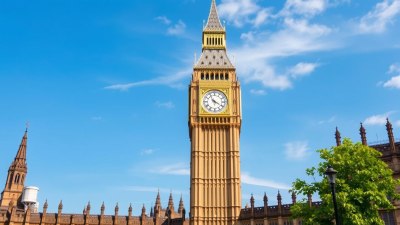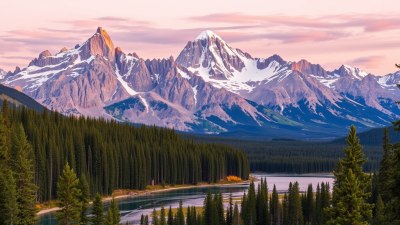What Movie Characters Get Right (and Wrong) About Traveling
Explore cinematic portrayals of travel, from realistic depictions to common misconceptions.

Image by seventyfour on Freepik
Traveling is often romanticized in films, showcasing grand adventures, exotic locales, and life-changing experiences. However, these portrayals can range from spot-on to wildly inaccurate. In this article, we’ll dive into various movie characters, analyzing what they get right and wrong about traveling.
1. The Adventurous Traveler: Indiana Jones
Indiana Jones, the iconic archeologist played by Harrison Ford, embodies the adventurous spirit of travel. He explores ancient ruins, uncovers historical artifacts, and races against time. What he gets right is the thrill of exploration and the unexpected challenges that come with it.
However, his expeditions often overlook the logistical realities of travel. The film's timeline is sometimes stretched, with Jones jumping from one continent to another in a matter of hours, something that’s unrealistic in real-life travel. Moreover, the dangers he faces can be exaggerated—most travelers do not encounter snakes or murderous cults on a regular basis.
2. The Naive Tourist: Eurotrip
In 'Eurotrip', a group of friends travels across Europe, showcasing various cultures and experiences. While the film captures the excitement of youth and travel, it gets some elements wrong. Characters engage in absurd antics, such as mistaking cultural landmarks or languages.
What 'Eurotrip' gets right is the spirit of adventure and friendship that accompanies travel. However, it often stereotypes cultures and fails to represent the complexities of engaging with different societies accurately. Additionally, the film neglects to show the practical considerations of budget travel and the importance of planning ahead.
3. The Soul Searcher: Eat Pray Love
In 'Eat Pray Love', Liz Gilbert embarks on a journey of self-discovery across Italy, India, and Indonesia. This movie succeeds in illustrating the transformative power of travel. It highlights how immersing oneself in different cultures can lead to personal growth and enlightenment.
However, it also wears a romantic lens that can mislead viewers. Real travel often involves discomfort, stress, and challenges that aren't depicted in the film. Liz's adventure appears almost magical, glossing over the nuances and struggles of truly experiencing another culture.
4. The Wanderer: Into the Wild
Based on a true story, 'Into the Wild' follows Christopher McCandless as he abandons his possessions to travel across America. This film captures the essence of wanderlust—the desire to escape societal norms and seek out raw experiences in nature. It gets right the notion that travel can offer profound insights about oneself and the world.
Nevertheless, the film also presents a dangerously romanticized view of isolation and survival. McCandless's journey resulted in extreme consequences that are often overlooked in the beauty of his travels. It’s a cautionary tale that highlights the importance of preparation and understanding the risks involved in traveling alone.
5. The Committed Traveler: The Motorcycle Diaries
'The Motorcycle Diaries' chronicles the early travels of Ernesto Che Guevara and his friend Alberto Granado across South America. This film beautifully portrays the impact of travel on worldview formation, highlighting social injustice and inspiring change.
What it gets right is the deep connection one can form with the places visited and the people met along the way. However, it also simplifies the complexities of culture and social issues, swinging between a documentary-like perspective and romanticized storytelling, which might mislead viewers about the actual experiences of traveling through South America.
6. The Misfit Traveler: The Secret Life of Walter Mitty
Walter Mitty, played by Ben Stiller, embarks on a journey that takes him from the mundane to the awe-inspiring landscapes of foreign lands. The film captures the escapism many feel in their daily lives and the desire to pursue adventure.
Mitty's journey emphasizes the beauty and spontaneity of travel and the importance of stepping out of one's comfort zone. It portrays authentic experiences in various locales that resonate with many travelers. However, like many films, it oversimplifies travel, suggesting that all you need for adventure is a single moment of courage, neglecting the planning and realities that usually accompany international travel.
7. The Realistic Traveler: Before Sunrise
Before Sunrise is a dialogue-driven film that perfectly captures the simplicity and depth of connecting with someone while traveling. Here, two strangers meet on a train and spend an evening exploring Vienna. This film gets travel right by focusing on the interactions that occur in new environments and how travel can foster meaningful relationships.
What it gets wrong is the idea that meaningful connections can be made effortlessly. Real-life interactions require vulnerability and courage that may not always result in instant chemistry, especially in foreign places. The film romanticizes the chance nature of travel encounters while neglecting the potential awkwardness and challenges involved.
8. The Dreamers: Wild
'Wild' follows Cheryl Strayed’s solo hike on the Pacific Crest Trail, a journey of healing and self-reflection. This film demonstrates the power of nature in facilitating personal transformation and growth. Strayed’s experience resonates with those who find solace in adventure and the great outdoors.
While it captures the essence of perseverance and confronting one’s past, it also dramatizes certain experiences for cinematic purposes. The extreme physical challenges she faces are real, yet many travelers don’t undergo such drastic trials, often enjoying their adventures without the dramatic moments depicted in films.
9. The Exotic Up-and-comer: The Beach
In 'The Beach', Leonardo DiCaprio's character seeks out a hidden paradise in Thailand, only to find that it comes with complications. This film dives into the lure of exotic travel and the quest for utopian experiences. It goes well with the allure that many travelers feel when searching for the hidden gems of the world.
However, the film also exaggerates the idea that such places exist untouched and free of conflict, which is often not the case in reality. It addresses the darker side of tourism, showcasing that paradise often comes at a cost—something many would-be adventurers might overlook when fantasizing about travel.
The Lessons from Film Travel
Films can romanticize the experience of travel, but they can also serve as a cultural lens through which we view the world. They capture the highs of exploration, the joy of friendships forged in foreign lands, and the transformative power of travel. However, it is crucial to remember that the reality of travel is often more nuanced and complex.
When watching travel-related films, embrace the inspiration they can provide, but also remain grounded in reality. Travel is a journey that involves preparation, understanding, and a willingness to face challenges. So next time you find yourself daydreaming about cinematic adventures, consider both the magic and the truth behind what traveling is really like.











